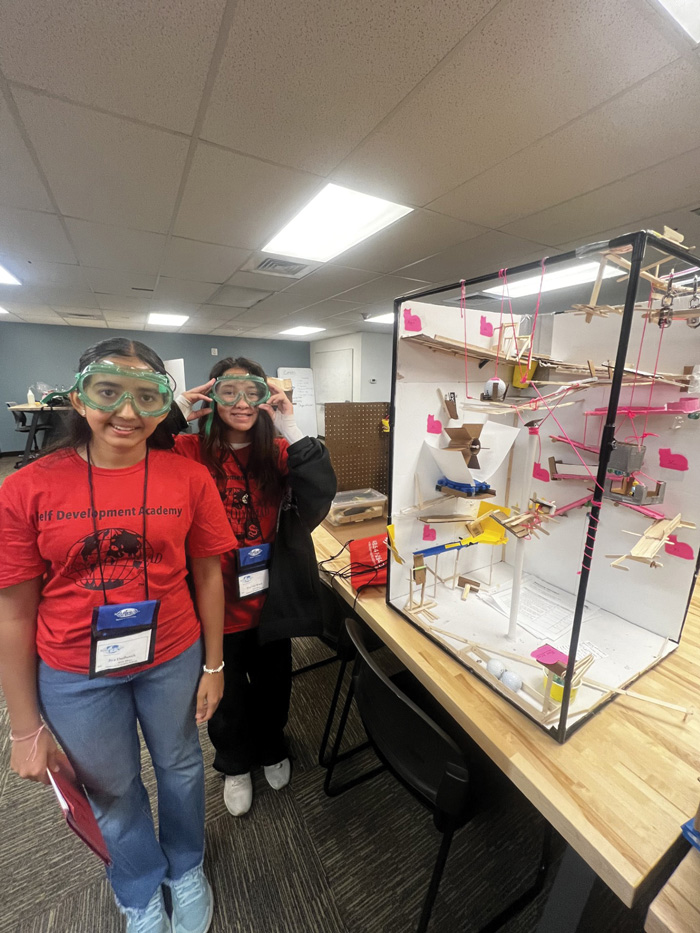An awe-inspiring education bewilders us with the amazement of the world, its workings, and its vast knowledge. Developing a lifelong love for knowledge begins early with students experiencing joy, finding meaning in their school activities, and being engaged in learning. As experts state, “Education is most effective when students feel engaged and valued.” To foster student engagement and learning, schools can provide opportunities for student growth, honing their critical and creative thinking, cultivating a sense of responsibility, and finding personal value in their school experience.
One aspect of student life that persistently occupies the minds of many students is how to get into a good college and receive scholarships to pay for college tuition. Getting into a good college is becoming increasingly competitive. In response to this need, Self Development Academy (SDA), a K-8 charter school, has developed an innovative program that will not only continue to strengthen the educational foundation but also help our students stand out as exceptional candidates for colleges and coveted scholarships.
SDA leadership is excited to share its vision for the School Year 2025-26. Academic rigor will remain a focus, along with integrating three critical components of SDA’s groundbreaking programs, including research skills, community service, and geometry with art.
ACADEMIC RIGOR
Academic rigor for SDA is not about taking tests or doing hours of homework; it is more about providing opportunities to connect and explore real-world ideas, challenging beliefs, and using critical thinking for problem-solving. Our commitment to an accelerated curriculum will continue, and eligible students will have the opportunity to participate in courses at one to three grade levels higher than those of the Arizona State Standards. For example, SDA’s eligible students can take Algebra II in eighth grade.
RESEARCH SKILLS
Research is the foundation of knowledge. SDA believes in teaching research skills to students as early as possible, developing lifelong skills of posing questions and finding solutions. The research process is a systematic approach to selecting a topic, posing a question, developing a methodology to collect information, analyzing and evaluating the findings, drawing a conclusion, and answering the original question. Students also learn to evaluate the credibility of sources, thus reinforcing the development of critical thinking. Learning research skills is not an easy task. However, like any skill, it must be practiced for proficiency.
They learn the life skills of notetaking. They can proudly share their research findings with an audience of classmates, parents, and the community. Developing research skills at an early age prepares them to become future scientists and experts to solve real-world problems and contribute to innovation and progress in unimaginable areas. Research skills are among the most valuable and reinforce a love of knowledge.
GEOMETRY AND ARTS
Ever wonder how geometry influences the arts? From the hexagonal cells of a honeycomb to the crystalline structure of minerals, geometry is all around us, shaping the world we live in. Modern physics relies on geometric concepts to describe the curvature of space-time and the fundamental forces that govern the universe. Even the human body exhibits remarkable geometric proportions, from the Golden Ratio in facial features to the symmetry of our limbs.
Finally, our perception of beauty is often linked to geometric principles, such as symmetry, balance, and proportion.
Geometry is all around us. At SDA, we invite students on a journey through the interwoven beauty of art and mathematics. This is an interdisciplinary program that integrates history, art, mathematics, and science. Students will learn about the history of geometry as a field of study, a tool for survival, and a tool for delight from prehistoric man up to the present. They will use geometry in creating 2D and 3D perspectives and proportions, and appreciate the uncanny emergence of geometry that echoes in nature, including the Fibonacci sequence.
COMMUNITY SERVICE
Through community service, students develop leadership skills, humility, and empathy. Working for the betterment of the underserved not only makes a significant difference but also has long-term and enduring benefits for students. Helping others allows students to meet new friends, develop new interests and skills, and gain a broader perspective. Their commitment to community service makes them stand out as candidates for competitive colleges and scholarships. Volunteering brings joy and happiness, which is a reward in itself. SDA’s design for vibrant learning lays the foundation for a lifelong love of knowledge.
To learn more about Self Development Preschool, please contact (480) 396-3522. For the accelerated K-8 program, Self Development Academy, call Self Development Academy at (480) 641-2640.



